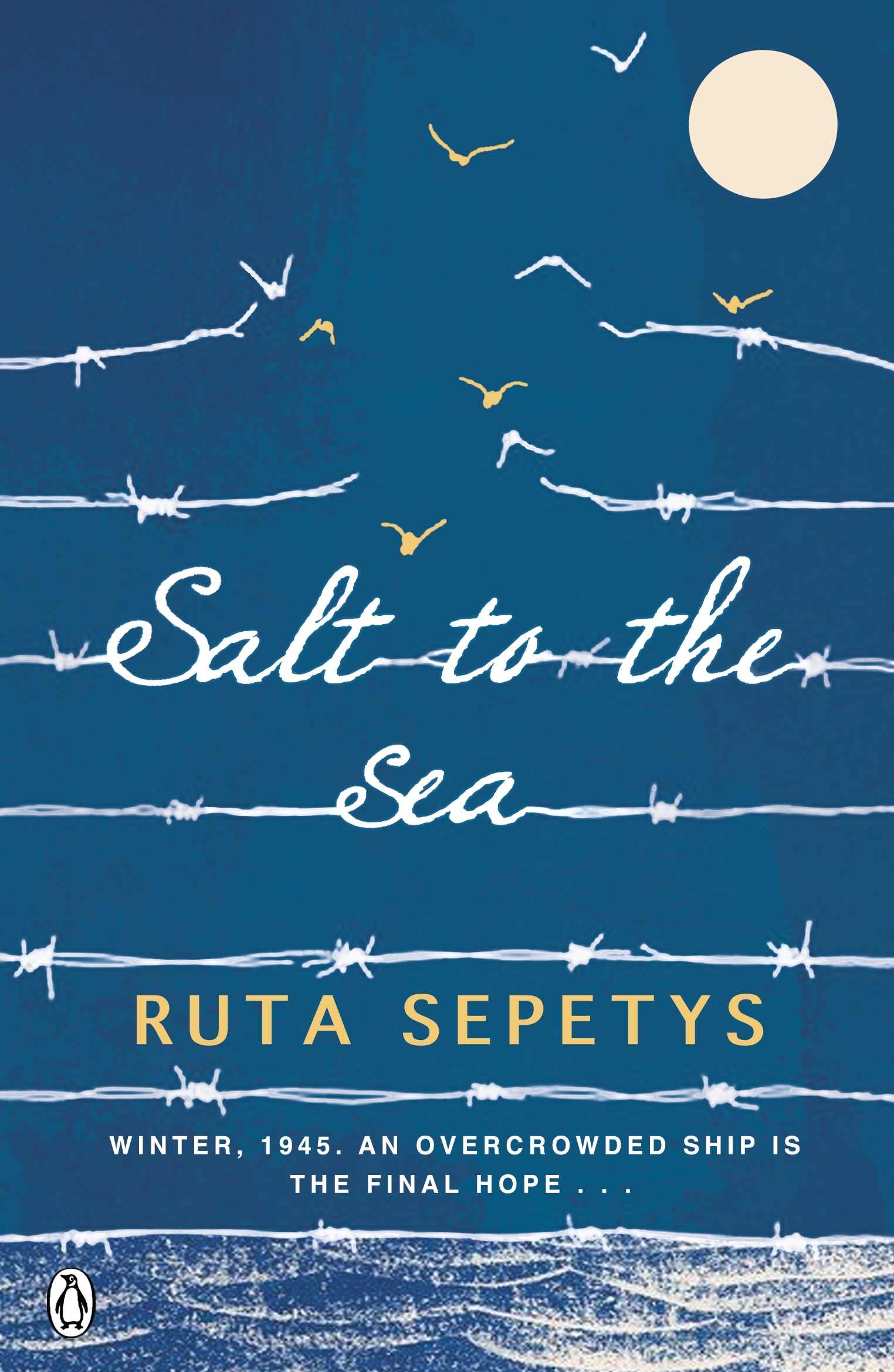Salt to the Sea

Growing up were you conscious of your Lithuanian heritage? Did you read books by Lithuanian authors – or indeed have access to any?
When did you know you wanted to write and specifically write for young people? Were you always drawn to the historical genre?
I’ve always known that I wanted to write for young readers. Books we read as teens have the opportunity to make a profound, lasting impression that stays with us into adulthood. Young adults are deep thinkers. They process story with an intense emotional truth. They have a profound sense of justice and they are an honest and tough audience.
Yes, I’ve always been drawn to the historical genre. Writing historical fiction is like being a detective. I love discovering secrets, hidden facts, and hidden heroes. Sometimes history can be perceived as boring. But through characters and story, historical statistics become human and suddenly we care for people we’ve never met, we can find their country on a map, and then – the history matters. Through historical fiction we can give a voice to those who will never have a chance to tell their story. That inspires me!
I’m drawn to hidden history and stories of strength through struggle, so I look for topics that contain those elements. Salt to the Sea and Between Shades of Grey both contain themes of hope, courage, love and loss. Yes, I have a family connection to both novels. My father’s family was deported to Siberia and that inspired Between Shades of Grey. My father’s cousin was part of the refugee evacuation in 1945 and had a passage on the Wilhelm Gustloff. She is the one who inspired me to write Salt to the Sea.
Do you do a lot of research? How did you go about this? Were there any special or interesting aspects that helped bring the period/situations alive?
I adore the research process. For research, I first read all the non-fiction sources available. I speak with academics and historians. I then travel to the country where the story takes place to explore the landscape, the culture and the people. I generally interview dozens of people while researching a book. I then weave stories from many people together into one character so that way I’m representing a larger human experience and not just one person.
Where did your characters come from? Though in Between Shades of Grey your characters are Lithuanian, in Salt to the Sea, they all have very different backgrounds and nationalities. Was it difficult to create distinct voices for them?
The characters in Between Shades of Grey were inspired by many people I interviewed during my research and also by people I know or admire. While researching Salt to the Sea I was reminded of how many regions and countries were affected and suffered during the evacuation. When I interviewed people from those different countries, I realised that human beings may experience the same event but will have dramatically different interpretations of it. Every human being views history through their own cultural lens so I created characters who would give a voice to a particular regional experience and allow the reader to look through their lens.
Do you feel that authors – particularly those writing for young people – have a real responsibility to bring these lost incidents to light? Do you feel a responsibility not just to an audience who will have never learnt about them, but also to an audience for whom it is part of their history?
I hope that by sharing difficult parts of history with young people they will study them, learn from the mistakes of the past, and strive to create hope for a more just future. I feel a responsibility to strive for accuracy and authenticity.
